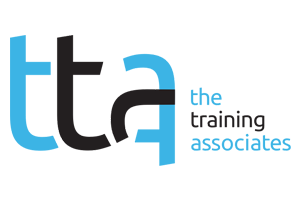Soft skills have always been in demand, but with the evolution of artificial intelligence (AI), these human-centered skills are more important than ever. Organizations that focus only on developing teams’ hard skills like technical and business acumen risk falling behind.
Soft skills training is the competitive edge leaders should be looking at right now for three important reasons:
- Teams with excellent soft skills collaborate better, communicate more effectively, get work done faster and are more satisfied with their job and peer relationships.
- Customers expect to be treated with care and respect for their unique situations, and they look to your employees to solve their problems — all of which fall under vital soft skill categories.
- Soft skills development creates a future-ready workforce that’s resilient, adaptable and capable of thriving even during sudden shifts in the industry or market.
This article dives deeper into why each of these reasons should matter to you now and how, as a learning and development (L&D) leader, you hold the key to bringing impactful soft skills development training to life.
But First, What Are Soft Skills?
Soft skills are personal attributes that enable someone to interact effectively and harmoniously with other people. They may be referred to as “people” or “leadership” skills because individuals with soft skills tend to be better at:
- Building relationships
- Leading teams
- Collaborating with peers
- Understanding emotions
- Listening to others
- Managing conflicts
- Using time effectively
- Thinking critically
- Solving problems
- Adapting to new situations
A common misconception is that soft skills come naturally and can’t be effectively learned. But the truth is you don’t have to be born with an aptitude for a certain soft skill to be good at it — you just need to recognize the areas in which you can improve and make a commitment to get better every day.
Take a moment to think: What soft skills are you great at? What do you want to get better at? Consider making a goal for yourself over the next two weeks to practice at least one of the soft skills you want to improve.
How Do Soft Skills Make a Difference in Daily Work?
Both hard and soft skills development are essential for individual and organizational success. Although technical and business acumen play a vital role in meeting goals from quarter to quarter, there is no substitute for understanding how to effectively work with other people from an empathetic, human-centered perspective.
Soft skills development training makes this possible — and it can start as early as the onboarding process. Soft skills prepare team members to navigate nuanced situations and find the best way forward with organizational goals and meaningful customer outcomes top of mind. L&D leaders who master a variety of soft skills tend to perform at a higher level and are often more trusted by peers and stakeholders.
These leaders can also inspire other employees by modeling key behaviors and best practices that directly tie to the most important soft skills of today. As teams learn to work together more effectively, it improves every aspect of the business — both internally through increased efficiency, job satisfaction and cross-team trust, and externally through enhanced customer experiences and positive brand recognition. Moreover, the workforce becomes more prepared for future challenges.
Let’s take a closer look at how soft skills create a competitive edge by improving teamwork, driving exceptional experiences and creating a future-ready workforce.
1. Teams work better together with the right soft skills training development opportunities
These days, it’s common to have a mix of in-person, remote and hybrid employees. This creates flexibility and promotes diversity, but it also requires a unique approach to communication to ensure everyone is on the same page.
Think about the last time you had a misunderstanding with someone over text messages or in a work chat. How did it make you feel? How do you think the other person felt? And how did you resolve the situation (or did you resolve it at all)?
With the right soft skills development training, organizations can exponentially reduce team misunderstandings by improving the ways in which team members communicate with and listen to one another. Teams that are high in soft skills act with empathy and have a desire to understand each other even without being able to hear someone’s tone of voice or see their expression.
This ultimately benefits the business because less time must be spent solving a misunderstanding and that time can be used for more important matters. Employees who get along with their peers also tend to feel more comfortable and happier showing up for work each day, and they tend to become more resilient and adaptable in the face of challenges knowing that they can rely on their coworkers.
Here’s an example: After years of rapid growth, Pure Storage uncovered a need to unify their culture, enable soft skills for developing leaders and establish a shared foundation for team members across the world. But they wanted to do it differently — instead of creating mandatory training, they decided to share their story through an engaging, voluntary experience that invited learners to invest in their own growth and be part of the company’s rich history. After only six months, more than 2,300 team members chose to participate in the program, and a post-training survey showed that participants felt more connected personally with their jobs and peers as a result.
2. Soft skills drive exceptional service experiences
Competitive customer experiences depend on human-centric skills. While AI and automation can handle more routine tasks and filter customer inquiries, this technology can’t replicate human nature. Organizations that neglect the humanity behind customer interactions tend to fall short of high-quality customer experiences, instead providing only average or less-than-average (or even sometimes downright frustrating) encounters.
Soft skills training development for customer-facing roles can be a significant differentiator. People notice when they’re treated with care and empathy — when the person they’re talking to is actually listening to their problem and wants to help. But listening is only half the battle.
To truly create an exceptional experience, team members must know how to think critically and creatively to find solutions for each customer’s unique situation. Sales enablement builds the interpersonal skills that enable teams to go the extra mile in building trust and long-term relationships with customers by solving a problem, not just providing a transactional product.
Want another real-life example? Nestlé worked with AllenComm to build a robust learning experience that addresses the needs of four learning groups: marketing, sales, product development teams and cross-functional teams. Their Omni University program, which won five different awards, is a one-stop resource that supports personalized soft skills development learning journeys as learners prepare to improve the customer experience even in a digital environment. Over 70% of survey respondents who completed the training gave the program a five-star rating.
3. Custom skills development creates a future-ready workforce
One-size-fits-all training solutions often drop off over time because they don’t target learner needs in a personalized way. Custom soft skills development training, on the other hand, makes full use of today’s technology to increase engagement and better prepare employees to grow in their careers over time — and to handle challenges and uncertainty.
A personalized approach to soft skills development, and by extension future workforce skills development, can be targeted in a variety of ways — such as with engaging microlearning or informally through on-the-job coaching conversations tailored to individual learner needs. It can even help current managers become high-performing leaders who can achieve specific organizational goals and measurable ROI that build a case for future L&D investment.
As with any training initiative, it’s important to gather the right data to inform which soft skills are most relevant to prepare your workforce for the future. Remember to also look at where your competition excels and what they lack to discover new opportunities to provide better, more exceptional services that set your organization apart.
Make Soft Skills Development a Focus Today
There are many emerging trends in soft skills training development, so being able to sort through what’s purely hype and what will actually make an impact may be your next step. But you don’t have to do it alone. Practice your own soft skills by connecting with other leaders and teams to uncover what’s important to them and where they can grow. Consider partnering with an external L&D services provider to help bring your vision to life.
Soft skills will always be in demand, and by investing in custom soft skills development training now, you can create the competitive advantage needed to set your organization apart as an expert in your industry and achieve long-lasting, sustainable results.



